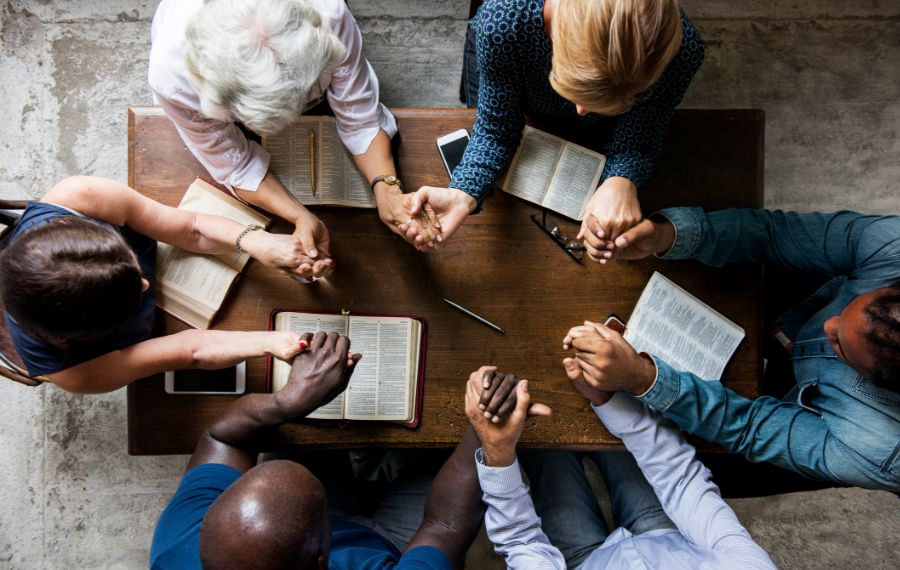When Tragedy Strikes, the Church Should Be on the Front Line

When inexplicable tragedies like the Uvalde shooting occur, many people turn to their local church looking for answers and ways to support those affected. In times of difficulty, we do need to turn to God and pray — but there are tangible ways the Church should step up and be the hands and feet of Jesus.
Texas Governor Greg Abbott acknowledged the need to provide mental health support to the Uvalde community, and I’m glad that he understands this is important. But I wonder, who is going to be there for the “one day at a time” that it’s going to take these victims to survive in the long-term?
The Church Can Bridge the Gap
This is where I believe the Church can bridge the gap to renewed hope and healing. One of the functions of the Church is to equip the saints for ministry. In times of crisis, our local churches need to be ready to mobilize the body of Christ, just as the Red Cross would do following a natural disaster. This mobilization is the very support that I believe is essential for a community like Uvalde to fight hopelessness in the weeks and months ahead.
When I first heard about the Uvalde shooting, I shared the emotions of everyone else learning the horrifying news. I felt angry that young lives were stolen and parents’ hearts were ripped apart. Simultaneously, I felt tremendous concern for the mental health of the survivors and first responders who would have to find a way to heal from this deep trauma.
Through no fault of their own, most pastors and members of our churches don’t know how to minister to someone who has experienced major trauma. A counselor or a licensed therapist is equipped to help, but how does the one suffering cope day-to-day, between appointments?
People Helping People
More than two decades ago, I founded the nonprofit organization Fresh Hope for Mental Health. While we offer many programs and resources to support those with a mental health issue and their loved ones, the essence of what we do centers around the idea of peer-to-peer support. We help churches identify and train “Hope Coaches” within their congregations who can walk alongside someone who is dealing with a mental health challenge, be it depression, trauma wounds, debilitating anxiety or another issue. They’re not clinicians, they’re just people helping other people process their pain by being present, asking the right questions and listening.
Whether it’s an organization like Fresh Hope training a church to mobilize “Hope Coaches” or some other approach to equipping the saints for ministry, I believe this one-on-one support is how churches can help communities like Uvalde move forward. The Church needs to be ready for the hardest moments in life, which will inevitably present themselves in one form or another.
Hope for the Long Haul
At the risk of stating the obvious, hopelessness will be an issue in the days and weeks following this tragic event, for the parents who lost their precious children, the first responders, the survivors and the Uvalde community at large. They’re going to need help for the long haul to find a way forward. Our churches have the hope that these families need. How can we share it without stuffing Jesus down their throats or oversimplifying it, suggesting they just trust God and pray?
Yes, trust God and pray, but these victims also need someone to just listen and be there, as they grieve and begin to process their pain. This simple act of being present can lessen the effects of their trauma. Seeking therapy from a licensed professional is important, but what a therapist can’t do is walk alongside someone day to day.
Hope is Coming
Imagine if you were a witness to a car accident in which someone was badly hurt. You rush to their side and it’s evident the injured person is in terrible pain and shock is beginning to set in. You lay your jacket over their wound in an effort to stop the bleeding, then you look them in the eyes and say, “Just keep talking to me, just keep talking to me,” to keep their eyes on the help that is coming.
This is how the Church can mobilize their congregations: be present, bridge the gap and keep their eyes on the hope that is coming. Those who are hurting will have the big, tough questions, like “how could God let this happen?” But right now, for the trained “Hope Coach,” the point is not answering those questions. It’s standing with the person who is grieving, letting them feel it and remembering that God has promised to be our ultimate Comforter. Sometimes that comfort comes in the form of a friend walking alongside you.
The Love of Christ
I would love it if every church in America was equipped for not only the unexpected crises of horrific events such as in Uvalde, but for the tsunami of mental health issues that are brewing in our nation, between the pandemic, global unrest and a slew of other causes for anxiety, depression and hopelessness. While I’m a believer in therapy, appropriate medication and self-awareness, I also know that the love of Christ from person to person is essential for living well despite emotional trauma or a mental health diagnosis. If our local churches will step up and fill the gap of much-needed mental health care support, our nation will be a much healthier place to live.
Brad Hoefs is a pastor, international speaker and mental health advocate who is passionate about coaching, inspiring and empowering others with hope no matter what circumstance they may be facing. He is best known as the founder and executive director of Fresh Hope, an international network of peer-to-peer Christian mental health support groups and resources.







